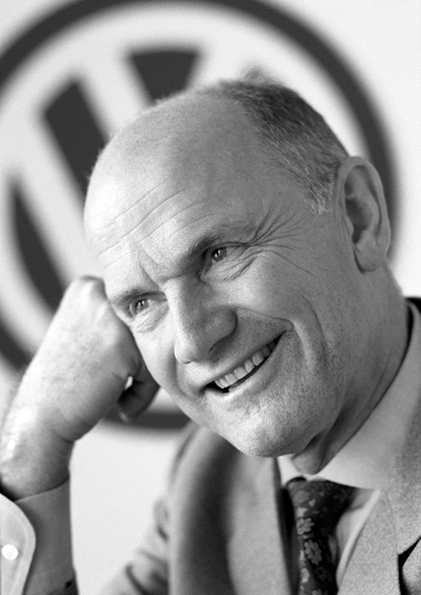
His automotive career began at Volkswagen in 1952, with an apprenticeship building engines before going to boarding school in Switzerland. In 1963, armed with a master's degree in engineering, he joined Porsche, at first working on the 911 road car.
In 1966, Piëch was promoted to run Porsche's Experimental Department, a post he would hold until 1971. During those years, the company put out a succession of world-beating race cars, culminating in the Porsche 917, which did so well in endurance and CanAm racing in the early 1970s.But a change in company policy barred Porsche family members from management roles, and so Piëch decamped to Audi. There, he served as technical director and oversaw the introduction of all-wheel drive, which remains synonymous with the brand, as well as turbodiesel engines, which don't.
In 1993, Piëch became CEO of Volkswagen AG, the parent company that owned VW, Audi, Seat, and Skoda. He added Lamborghini, Bentley, and Bugatti to that list in 1998, and his time as CEO at the top was marked by a series of vehicles that put engineering ahead of profitability. Few will have driven an Audi A2 or VW Phaeton, and fewer have sat behind the wheel of a Bugatti Veyron or VW XL1. But each was built to satisfy a specific Piëch demand.
Despite championing those costly cars, Piëch enjoyed devoted support at the company, even after leaving VAG's board in 2002. In retirement, he was still accused of pulling strings. He was blamed for ousting CEOs at VAG and Porsche, as well as engineering the purchase of the family business by VAG in 2012 after Porsche became over-leveraged in its own attempt to take over VAG first. He was long gone from day-to-day decision-making by the time diesel's deficiencies were fully revealed, although at the time we did wonder if the emissions cheating came from a desire to impress this engineer's engineer.Listing image by Audi
reader comments
106